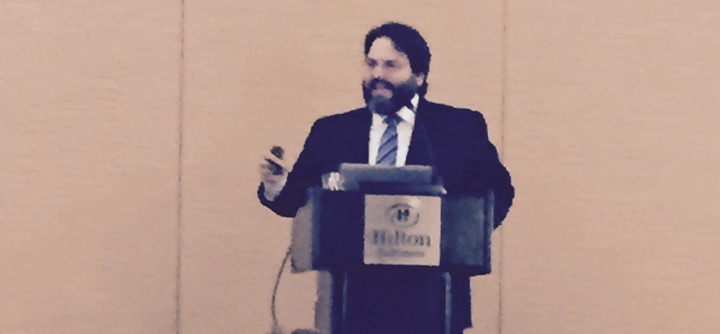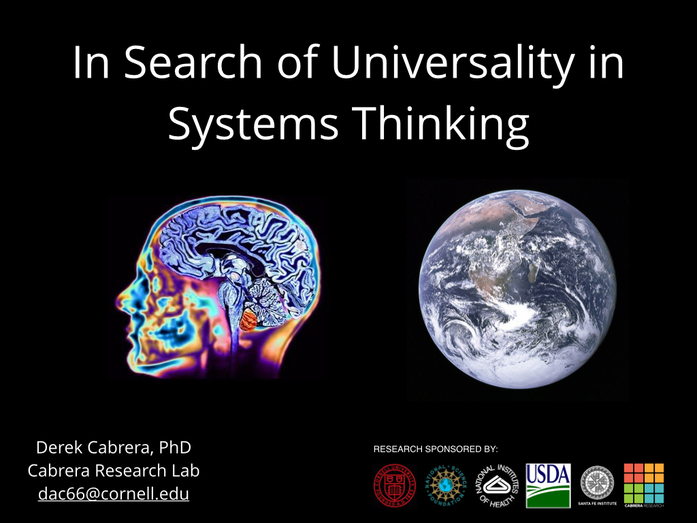Derek Cabrera Keynotes Adult Learning Conference
 Erin Powers
·
2 minute read
Erin Powers
·
2 minute read
Dr. Derek Cabrera gave a keynote address entitled "A Systems View on Adult Learning" at the CAEL International Conference on November 18, 2015, to 600 adult learning professionals. The Council for Adult and Experiential Learning (CAEL) organized this year's conference in Baltimore, Maryland, around the theme of “Where to Grow from Here: Scaling What Works for Adult Students.” Other keynote speakers included Under Secretary of the US Department of Education and the Tertiary Education Coordinator of the World Bank.
The CAEL conference gathers hundreds of participants around the shared goal of making lifelong learning accessible to adults globally. College faculty and administrators, human resource professionals, workforce developers, labor and government representatives and leaders are among the attendees in this annual event.
Scott Campbell, CAEL's Vice President, Higher Education, noted his organization's "reputation for excellence in the adult education world" and that "many colleges and universities seek out our work to better understand how to serve adult learners."
In introducing Dr. Cabrera, Campbell remarked that "CAEL is committed to being on the cutting edge of adult learning and learning from change makers, innovators, scientists and thought leaders to keep our own saw sharp. Dr. Cabrera offers such a perspective which is important as adult learning undergoes sweeping changes. At a conference entitled Where do we grow from here?, I suspect the ideas that Dr. Cabrera will share with you today will chart a course for the future of adult learning."
Dr. Cabrera's talk began by explaining the process of learning as a complex adaptive system and then proceeded into a systems analysis of adult education. Arguing the importance of using accurate mental models of the situation facing contemporary adult learners, Cabrera described the need to supplement the traditional focus on access and enrollment with competency. Competency in the 21st century includes content mastery, lifelong learning, IQ-type skills but also EQ- (or emotional intelligence) type abilities. From a systems view, Cabrera explained, the longest lever of change to bring about these skills is to incorporate metacognition in the classroom. Research shows that metacognition leads to these four skills.
Cabrera recently published an article with colleagues on emotional intelligence as a byproduct of practicing the four simple rules (DSRP) underlying all systems thinking methods and approaches.
Cabrera provided a wealth of statistics and business trend data on how the perception toward degrees is changing, making it even more critical for colleges and universities to focus on aligning degree attainment with quality of learning and competency. Cabrera quoted Google's Laszlo Bock, author of Work Rules! and head of people operations: “Google has shifted its hiring strategies after realizing that a person's academic background bears no relationship to job performance.” Receiving over 2 million applications each year, Google hires just over 2,000, making it 25 times more selective than Harvard, Yale, or Princeton. "If Google is questioning the value of one's academic background," Cabrera said, "colleges and universities should take notice as an early warning sign."
Derek Cabrera and his wife, Dr. Laura Cabrera, have worked in the field of education for decades. They recently published the book Systems Thinking Made Simple: New Hope for Solving Wicked Problems, and are featured in a documentary film called RE:Thinking that is currently part of a kick-starter campaign by PhotoSynthesis Productions.
.png?width=150&height=150&name=CRL%20GOAT%20Logo%20(4).png)


